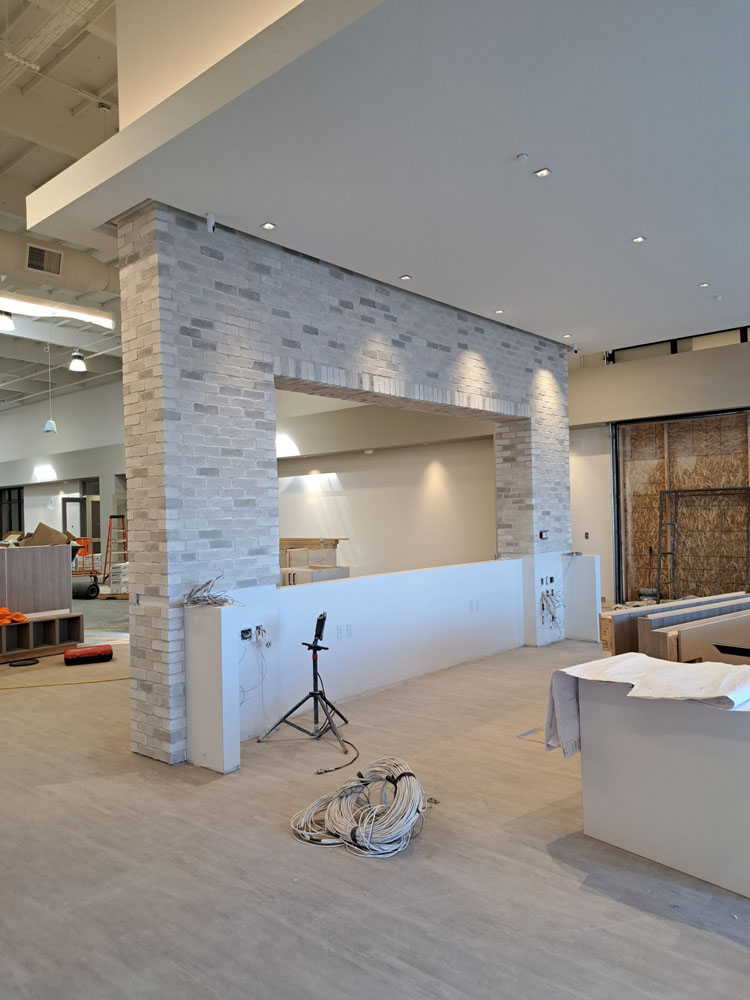Introduction
When it comes to home maintenance, masonry is often overlooked, yet it plays a crucial role in the structural integrity and aesthetic appeal of our homes. From brick walls to stone patios, masonry work can enhance the beauty and durability of any property. However, like all good things, masonry requires regular upkeep and occasional repairs. So how do you know when it's time to call a masonry contractor? In this comprehensive guide, we'll delve into the intricacies of masonry repairs, providing you with valuable insights and answers through our Masonry FAQs: How Do You Know When It’s Time for Repairs?
In this article, we will explore the signs that indicate your masonry needs attention and address common questions about masonry repairs. This information will empower you to make informed decisions regarding your home's maintenance.
Masonry FAQs: How Do You Know When It’s Time for Repairs?
Understanding Masonry: What Is It?
Before we dive into repair signs, let's clarify what masonry is. Masonry involves constructing structures from individual units—these can be bricks, stones, or concrete blocks—joined together by mortar. This versatile building method has been used for centuries and is known for its strength and durability.
The Components of Masonry Work
Bricks: The most common unit used in masonry. Mortar: A mixture of sand, water, and cement that binds bricks or stones together. Stone Blocks: Natural stones used for aesthetic purposes or structural elements. Reinforcement: Steel rods may be included to provide additional strength.Why Does Masonry Need Regular Maintenance?
Like any other part of your home, masonry work can succumb to wear and tear over time due to weather conditions, age, or poor installation practices. Neglecting these issues can lead to costly repairs down the line.

- Weather Effects: Rain, snow, freeze-thaw cycles can cause significant damage. Moisture Penetration: Water infiltration can weaken the mortar and lead to mold growth. Structural Integrity: Cracks or shifts in masonry can indicate deeper foundational problems.
Signs Your Masonry Needs Repair: Cracks and Gaps
Cracks in your brickwork or stone walls are often one of the first indicators that your masonry may need attention.
Types of Cracks: What Do They Indicate?
Hairline Cracks: These are minor issues but could worsen if not monitored. Vertical Cracks: Often signify settling or shifting foundations. Horizontal Cracks: May indicate severe structural issues requiring immediate attention.Masonry FAQs: How Do You Know When It’s Time for Repairs? - Discoloration and Stains
Have you noticed unsightly stains on your brick walls or patio?
Common Causes of Staining:
- Efflorescence: White powdery residue caused by salt deposits from water. Rust Stains: Often from metal fixtures reacting with moisture. Mold Growth: Indicates prolonged moisture presence which can weaken structures.
Loose Bricks or Stones - A Telltale Sign!
Feeling a loose brick while cleaning your patio? This shouldn’t be ignored! Loose bricks indicate either deterioration of the mortar or potential foundation issues.
What Should You Do?
Consider consulting a licensed masonry contractor who can assess the situation effectively.
Water Damage - An Ongoing Concern
If you've experienced water leaks inside your home during rainfall, it's vital to check your exterior walls for possible water damage.
Signs of Water Damage:
- Peeling paint Mold growth Warped wood
Masonry FAQs: How Do You Know When It’s Time for Repairs? - Structural Movement
Notice doors or windows sticking more than usual? Structural movement could be at play here!
Possible Indicators:
- Uneven floors Gaps between window frames and walls
Hiring a Qualified Masonry Contractor
When facing any signs of damage in your masonry work, hiring a qualified contractor should be your next step.
Why Hire a Professional?
Expertise in assessing structural integrity. Access to quality materials tailored to your needs. Compliance with local building codes.Common Masonry Repair Techniques Explained
So what happens when you've decided it's time for repairs?
Typical Methods Include:
Repointing - replacing old mortar with new. Brick Replacement - removing damaged bricks entirely. Waterproofing - preventing future moisture infiltration.The Cost Considerations: Budgeting for Repairs
Repair costs can vary widely based on several factors:
| Repair Type | Estimated Cost Range | |------------------|----------------------| | Repointing | $5-$25 per square foot | | Brick Replacement | $10-$20 per brick | | Waterproofing | $500-$1500 total |
Frequently Asked Questions About Masonry Repairs
Now that we've covered some essential points about masonry repair signs let’s tackle some frequently asked questions:
How often should I inspect my masonry work?- Ideally once a year; twice if you live in extreme weather conditions.
- Minor repairs might be manageable; however, major fixes should always involve professionals.
- Quality installations can last up to 100 years with proper maintenance!
- Yes! Sealing helps protect against moisture infiltration after repairs are made.
- Look for recommendations online or ask neighbors who’ve had similar work done recently!
- Most reputable contractors offer at least a one-year warranty on their workmanship.
Conclusion
In conclusion, understanding when it’s time for repairs is crucial in maintaining the longevity and aesthetics of your property’s masonry features. Whether it’s cracks forming in your bricks or discoloration appearing on your stonework, staying vigilant about these signs will save you money in the long run—a stitch in time saves nine! By incorporating regular inspections into your home maintenance routine and knowing when to call a professional mason contractor, you'll ensure that both beauty masonry repairs near Sherwood and safety remain intact around your home.
Ultimately, investing time into understanding basic masonry care will not only enhance the value of your property but also provide peace of mind knowing you're proactively managing its upkeep! So remember our key question throughout this guide— “Masonry FAQs: How Do You Know When It’s Time for Repairs?” Stay informed so you can enjoy every aspect of your beautifully constructed abode without worry!